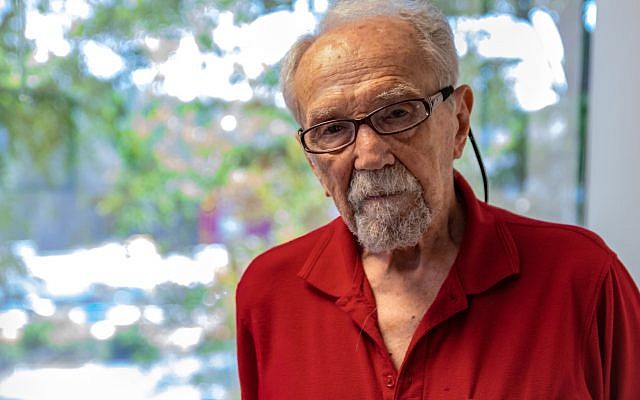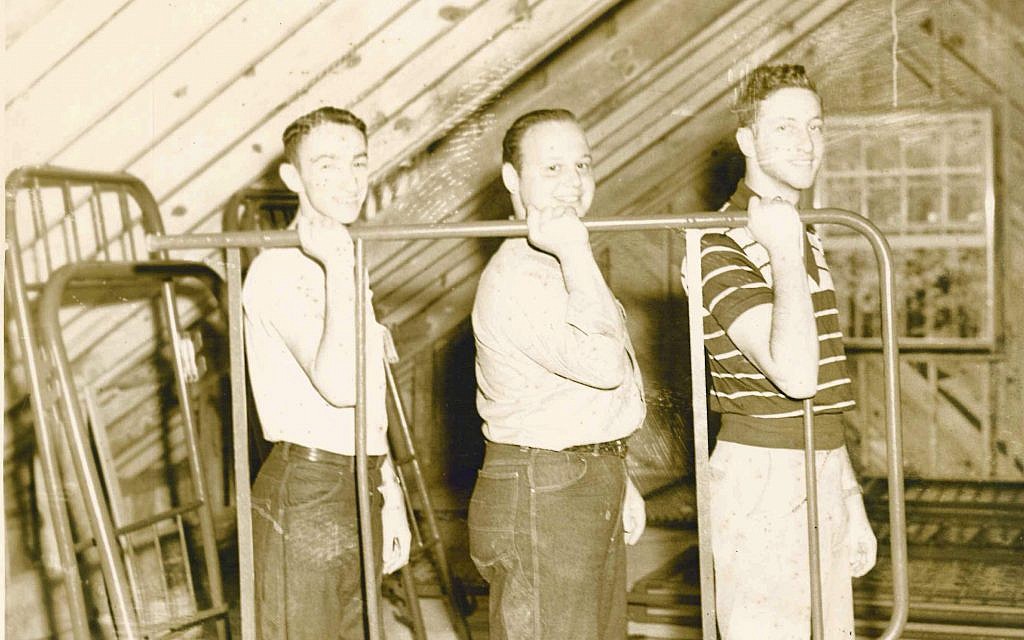Emory AEPi Brothers Look Back 70 Years
At 90, Arnold Zipperman was feeling nostalgic. A chance encounter with a former frat brother’s one-time crush inspired him.

At 90, Arnold Zipperman was feeling nostalgic. A chance encounter with a former frat brother’s one-time crush inspired Zipperman, an Atlanta native, to begin tracking down the six members of his Emory University Alpha Epsilon Pi pledge class. Having graduated in 1950, it’s been nearly 70 years since the men helped build a frat house, played team sports and bonded over group meals.
“I just felt the urge to do,” Zipperman said about his quest to find his brothers and reminisce about the good ole days of college and Atlanta. He located three brothers. The reunion of sorts was originally planned as a teleconference for nonagenarians who can’t travel. When the event finally arrived, though, only Zipperman and one other Atlanta native and fellow business school graduate, Malcolm Minsk, were part of the conference call May 29 facilitated and moderated by AEPi.
The questions centered around the background of the men, why they joined AEPi, what they gained from the experience, their favorite memories, and advice they might offer other brothers.
Zipperman, once chief operating officer of his family’s Atlanta Tallow Company, said he joined AEPi because it was one of two Jewish fraternities on campus and the only one with Southerners like himself. The other fraternity, Tau Epsilon Phi or TEP, was mostly Northerners.
Minsk is a well-known Atlanta accountant who still works nearly every day. He said he was told if he pledged AEPi he could play center field softball. Other than classes, he worked in his family’s kosher grocery store near the Georgia Capitol.
He recounted eating lunch at the frat house, which was on North Decatur Road at the time. “I paid my dues and did what I needed to do, not much. It was nice to say I went to school and I was a frat brother.”

Neither man lived on campus. Zipperman hitchhiked to campus every day. “We lived on East Rock Springs Road and if you go north, you wind up on campus. It’s a straight shot. I’d get up at 7 and at 7:30 I’d stick my thumb out and I was on time for my 8 o’clock class.”
He said he only spent time at the frat house after he helped build it in their senior year.
Minsk reminisced about the pledges being blindfolded when they were initiated. “They left us out in the country and we did not know where we were.” Soon they discovered a familiar cemetery, which marked the end of civilization in 1946, but it wasn’t far from campus. Minsk lives within a mile of there today and often passes the site.
At this point, Zipperman chimed in, “I lived closer then than Malcolm. … After we oriented ourselves where we were, we went over to my home and got my car, Papa’s car, and we got back [to campus] before the people who left us off.”
Both agreed Atlanta has changed dramatically since then. “The city limits were Peachtree Creek, Peachtree Battle,” Minsk said. “You can’t find the edge now. It’s such a massive city.
“The Jewish community was all on the south side while I grew up. There was not much interaction, at least on my level, between the Reform and the Ashkenazi on the south side. The Temple in the mid-30s was on Peachtree Street, a long way away. … It seemed way out in the country.”
Zipperman and Minsk remembered serving in the military when the Korean War broke out soon after graduation. Minsk was drafted into the U.S. Army. “I was lucky. I never went overseas.” Zipperman enlisted in the U.S. Air Force. While overseas, his first of four sons was born. Today he also has six grandchildren, four great-grandchildren and a 2-year-old great-great-grandson.
Minsk has three children and 10 grandchildren. His daughter and four grandchildren live in Israel, including two granddaughters in the Israeli Air Force.
He said his best advice to younger frat brothers is “Stay connected. I’ve been involved with Jewish camping and the day school movement. Staying connected Jewishly is going to lead to continuity.”
Neither one experienced anti-Semitism at Emory or in Atlanta, they said. But Minsk pointed out that his fellow Jewish business school graduates didn’t work for big corporate or non-Jewish firms, only other Jewish-owned firms, a family business or their own company. “You didn’t work for a bank or Standard Oil or IBM. To me, that was just the way it was.”
As for the experience of reuniting with his brothers, Minsk said, “I think it’s good to go back and reminisce. We don’t do enough of that. … There are not too many of us left at this stage. Life has been good to us.”
Ending the call, Zipperman wished all good health, “gey gezunt,” to which the AEPi moderator added, “Amen.”



comments